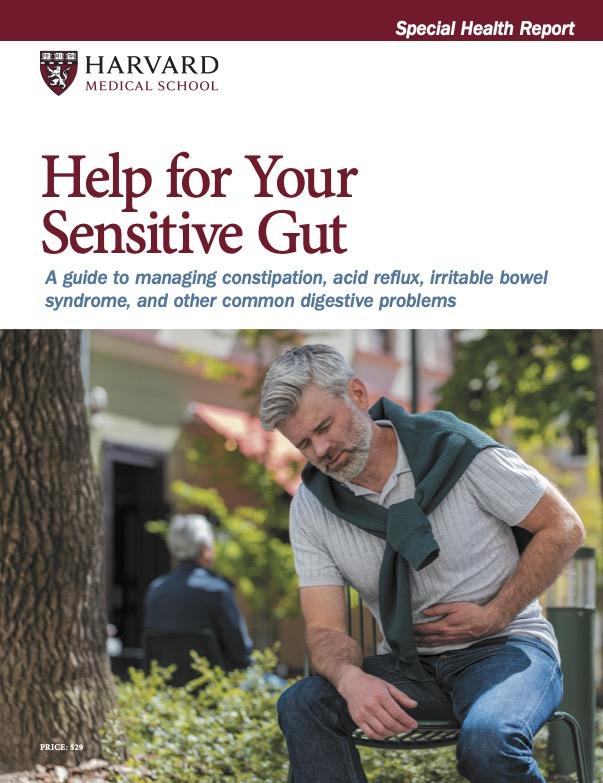Curcumin supplements might ease meal-related discomfort
News briefs
- Reviewed by Anthony L. Komaroff, MD, Editor in Chief, Harvard Health Letter; Editorial Advisory Board Member, Harvard Health Publishing

You might know turmeric as the golden-yellow spice used in curry powder and yellow mustard. Turmeric contains the naturally occurring chemical curcumin, which might have anti-inflammatory and antioxidant properties. And now a small randomized trial has found that taking curcumin supplements (derived from turmeric) helps reduce symptoms of functional dyspepsia — recurring, unexplained stomach pain, bloating, or early feelings of fullness. Scientists randomly assigned 206 people (ages 18 to 70) with functional dyspepsia to one of three treatments: taking 500 milligrams (mg) of curcumin (two 250-mg capsules) four times a day, taking 20 mg of the medication omeprazole (Prilosec, Zegerid) once a day, or taking both treatments each day. After about a month of treatment, people in all three groups said their dyspepsia symptoms had improved. The results were even better after two months. The findings suggest that curcumin supplements are as effective at relieving dyspepsia symptoms as omeprazole (which curbs stomach acid), and that curcumin is safe and well tolerated. The study was published online Sept. 11, 2023, by BMJ Evidence-Based Medicine.
Image: © Elis Cora/Getty Images
About the Author

Heidi Godman, Managing Director
About the Reviewer

Anthony L. Komaroff, MD, Editor in Chief, Harvard Health Letter; Editorial Advisory Board Member, Harvard Health Publishing
Disclaimer:
As a service to our readers, Harvard Health Publishing provides access to our library of archived content. Please note the date of last review or update on all articles.
No content on this site, regardless of date, should ever be used as a substitute for direct medical advice from your doctor or other qualified clinician.
















